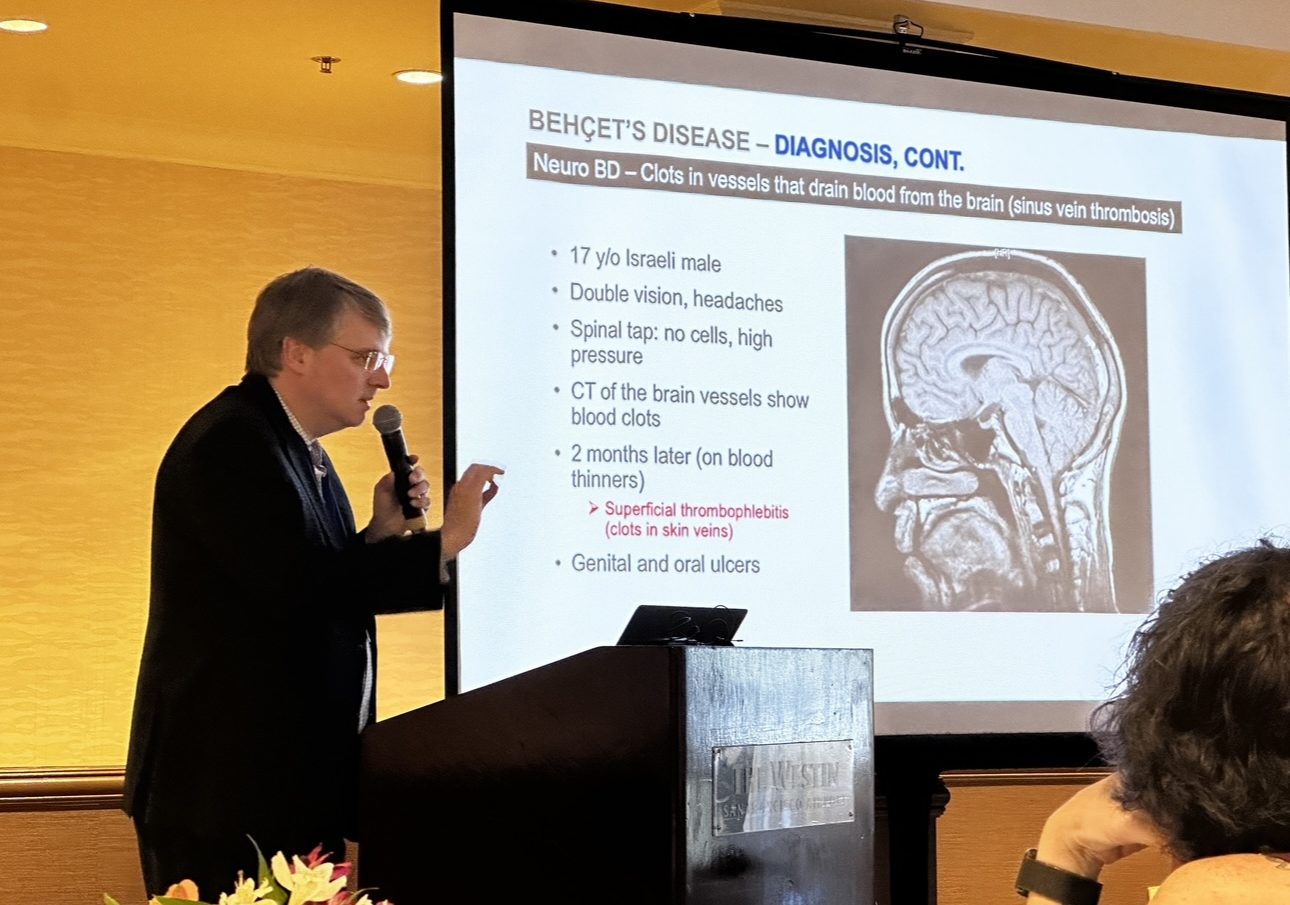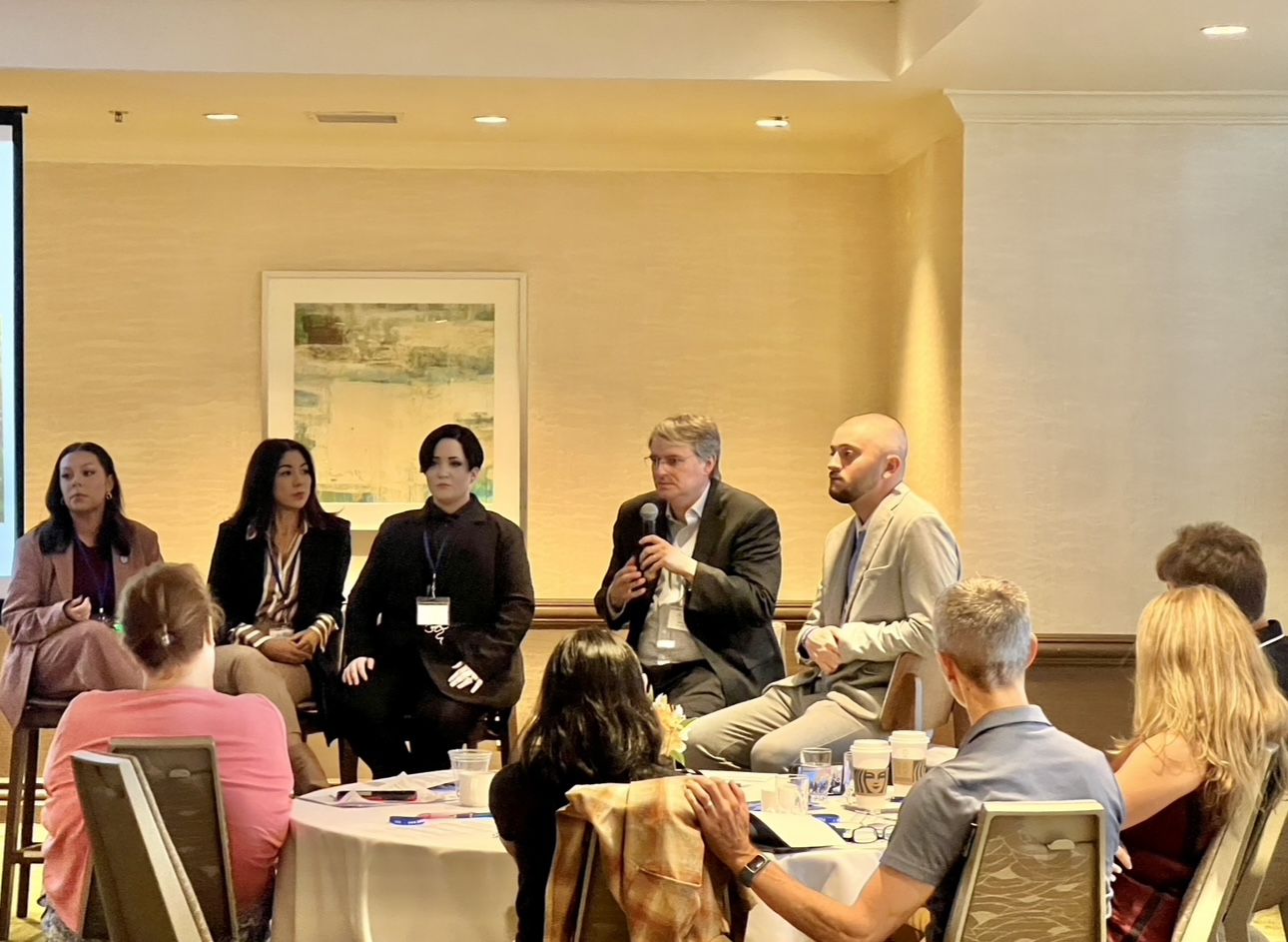Soligenix, Inc., a biopharmaceutical company focused on developing and commercializing products to treat rare diseases where there is an unmet medical need, announced today the formation of a Medical Advisory Board (MAB) to provide medical/clinical strategic guidance to the Company as it advances the clinical development of SGX945 (dusquetide) for the treatment of Behçet’s Disease.
The Company previously announced that the U.S. Food and Drug Administration (FDA) had granted Fast Track designation for dusquetide in the treatment of oral lesions of Behçet’s Disease.
“I am honored to have such a prestigious and dedicated group of physicians committed to working with us as we develop dusquetide therapy for Behçet’s Disease,” stated Christopher J. Schaber, PhD, President and Chief Executive Officer of Soligenix. “We have assembled some of the world’s leading experts in this field who collectively have hundreds of publications and have the experience of treating thousands of patients with this chronic condition. The initiation of a Phase 2a clinical study in Behçet’s Disease later this year will be another important milestone for our company and we look forward to working with the MAB to advance this program.”
Comprised of internationally renowned rheumatologists with extensive experience in Behçet’s Disease, the MAB will play an important advisory role in the conduct of the upcoming Phase 2a clinical study, as well as in the design of subsequent clinical studies and associated regulatory interactions with health authorities. The MAB will provide feedback, input and guidance on clinical strategies and their implementation, as well as on other critical items, such as health economics and reimbursement, to assist Soligenix in meeting the needs of patients suffering from Behçet’s Disease.

The MAB Members
Johannes Nowatzky, MD
Dr. Johannes Nowatzky is the Saul J. Farber Associate Professor of Medicine and Pathology at New York University (NYU) Grossman School of Medicine, where he directs the NYU Behçet’s Disease Center. Dr. Nowatzky has extensive experience in Behçet’s Disease, seeing thousands of patients, and sits on the Medical Advisory Board for the American Behçet’s Disease Foundation. Clinically trained in the Middle East, Europe, and the U.S., he has unique expertise with Behçet’s Disease from large referral centers in these regions. Dr. Nowatzky is a physician-scientist who, in addition to running the most extensive clinical Behçet’s Disease program in the U.S., directs an immunology research laboratory focused on the biology of Behçet’s Disease and ocular inflammation. His numerous publications in the field include primary research in impactful immunology/rheumatology journals, such as Annals of the Rheumatic Diseases. Dr. Nowatzky completed his fellowship at NYU Langone Medical Center and his residency in Internal Medicine at Hadassah Medical School, Israel. He received his medical degree from the Faculty of Medicine, Freie University Berlin, Germany.
Gülen Hatemi, MD
Dr. Hatemi is one of the world’s leading physicians in the treatment of Behçet’s Disease and leads the largest Behçet’s research center in the world at Istanbul University – Cerrahpaşa, Behçet’s Disease Research Center. Dr. Hatemi has over 250 publications in her field and has conducted numerous clinical research trials to understand the life impact of Behçet’s syndrome, to develop management strategies, and to improve outcome measures for clinical trials of Behçet’s Disease. Dr. Hatemi is the convener of the Disease Assessment Study Group of the International Society for Behçet’s Disease and co-chair of the OMERACT (Outcome Measures in Rheumatology) Behçet’s syndrome working group where she focuses on developing outcome measures for clinical trials and improving outcomes for patients with Behçet’s Disease. She is also a member of the European Union of Medical Specialists Section of Rheumatology. Dr. Hatemi completed rheumatology training in Istanbul University, Cerrahpaşa Medical School, Department of Internal Medicine, after completing residencies in both Internal Medicine and Pulmonary Medicine at Instanbul University. She received her medical degree from Cerrahpaşa Medical School.
Andrew Sulich, MD
Dr. Sulich is a rheumatologist in private practice at Shores Rheumatology, St. Clair Shores, MI, and Chief of Rheumatology at Ascension Saint John Medical Center in Detroit. He is also Assistant Clinical Professor at the William Beaumont Oakland University School of Medicine, and a clinical instructor of rheumatology for the residency programs at Saint John Hospital and Medical Center in the Beaumont Hospital System. Dr. Sulich has been honored with multiple awards, including Hour magazine “Top Docs” for 2010 to 2020. Dr. Sulich is a fellow of the American College of Rheumatology and is a member of organizations such as the American College of Physicians, the Michigan State Medical Society, the Arthritis Foundation and a member of the Medical Advisory Board for the American Behçet’s Foundation. Dr. Sulich completed his internship at Mount Carmel Mercy Hospital in Detroit. He completed his residency at St. John Hospital and Medical Center, where he served as chief resident. His rheumatology fellowship was completed at Henry Ford Hospital and he received his medical degree from the American University of the Caribbean School of Medicine in Saint Maarten.

Yusuf Yazici, MD
Dr. Yazici is an internationally renowned rheumatologist, researcher and expert in clinical trial design and management. He is a Clinical Associate Professor at NYU. His areas of interest are Behçet’s Disease, osteoarthritis, rheumatoid arthritis, early arthritis, patient reported outcomes, database and registry management and monitoring of arthritis patients in regard to clinical response and adverse events related to treatment. He has published more than 250 medical papers and book chapters and has given numerous national and international presentations. Dr. Yazici has been Chief Medical Officer of Biosplice Therapeutics, Inc. since 2013, leading the development of new therapies for osteoarthritis, various oncologic conditions and Alzheimer’s disease, and sits on the Medical Advisory Board for the American Bechet’s Disease Foundation. Dr. Yazici completed his fellowship in rheumatology at the Hospital for Special Surgery and Weill Medical College of Cornell University, New York City, NY and his residency in internal medicine at Creighton University, Omaha, NE. Dr. Yazici received his medical degree from Istanbul University, Istanbul, Turkey.
About Dusquetide
Dusquetide (the active ingredient in SGX945 (Behçet’s disease) and SGX942 (oral mucositis) is an innate defense regulator (IDR), a new class of short, synthetic peptides. It has a novel mechanism of action whereby it modulates the body’s reaction to both injury and infection towards an anti-inflammatory, anti-infective, and tissue healing response. IDRs have no direct antibiotic activity but, by modulating the host’s innate immune system responses, increase survival after infections caused by a broad range of bacterial Gram-negative and Gram-positive pathogens. Dusquetide also accelerates resolution of tissue damage following exposure to a variety of agents including bacterial pathogens, trauma, and chemo- and/or radiation therapy. Preclinical efficacy and safety have been demonstrated in numerous animal disease models including mucositis, colitis, macrophage activation syndrome as well as bacterial infections. In addition, potential anti-tumor activity has been demonstrated in multiple in vitro and in vivo xenograft studies.
Dusquetide has demonstrated safety and tolerability in a Phase 1 clinical study in 84 healthy human volunteers. In Phase 2 and 3 clinical studies with dusquetide in over 350 subjects with oral mucositis due to chemoradiation therapy for head and neck cancer, positive efficacy results were demonstrated, including potential long-term ancillary benefits.
Soligenix has a strong intellectual property position in the IDR technology platform, including composition of matter for dusquetide and related analogs. Dusquetide was developed pursuant to discoveries made by Professors B. Brett Finlay, PhD and Robert Hancock, PhD of the University of British Columbia, Canada.
About Behçet’s Disease
Behçet’s Disease is commonly known as an inflammatory disorder of the blood vessels (vasculitis). Often first diagnosed in young adults, its effects and severity will wax and wane over time. Major signs and symptoms usually include mouth sores (approximately 95% of patients), skin rashes and lesions (approximately 50% of patients), genital sores (approximately 50% of patients), leg ulcers (approximately 40% of patients) and eye inflammation (approximately 15% of patients). It is a painful disease, directly impacting the patient’s quality of life and ability to productively engage in life activities, including work.
Behçet’s Disease is thought to be an auto-immune disease with both genetic and environmental factors. It is most common along the “Silk Road” in the Middle East and East Asia, including Turkey, Iran, Japan and China. There are approximately 18,000 known cases of Behçet’s Disease in the U.S. and 80,000 in Europe. There are as many as 1,000,000 people worldwide living with Behçet’s Disease.
There is no cure for Behçet’s Disease, rather treatments are prescribed to manage symptoms. Treatments may include both maintenance therapies and those specifically addressing flares (e.g., mouth ulcers, genital ulcers and leg ulcers). Corticosteroids are generally applied topically to sores and as eyedrops and may also be given systemically to reduce inflammation. Although used frequently, they have limited efficacy over the long-term and have significant side effects that become more concerning with more chronic use. Genital ulcers are often associated with significant genital scarring while leg ulcers can result in a post-thrombotic syndrome. Other treatments for Behçet’s Disease flares involve suppressing the immune system with drugs (e.g., cyclosporine or cyclophosphamide). These drugs come with a higher risk of infection, liver and kidney problems, low blood counts and high blood pressure. Finally, anti-inflammatory drugs are also used, including anti-TNF medications. The only approved drug in Behçet’s Disease is apremilast, which is used as a maintenance therapy to prevent formation of oral ulcers. Unfortunately, apremilast must be used continuously to be effective and is associated with both high cost and side effects including diarrhea, nausea, upper respiratory tract infection and headache.














